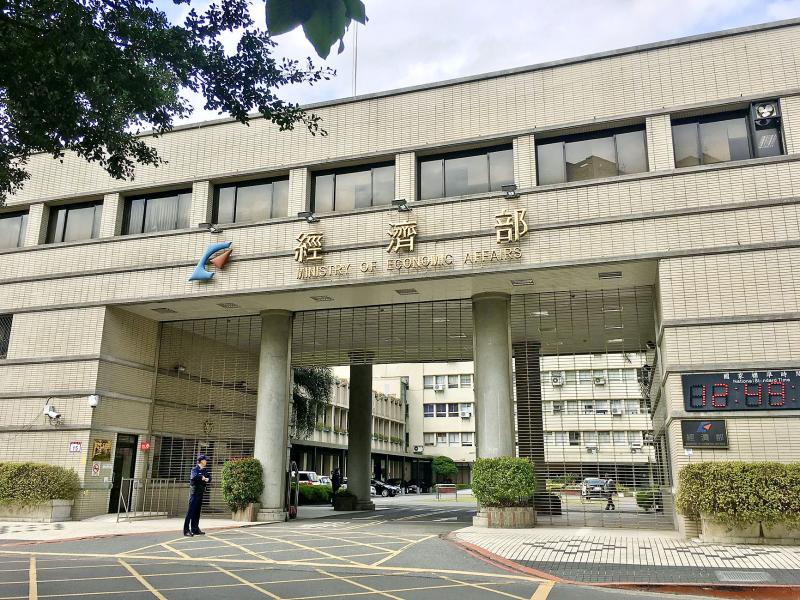Taiwan’s export orders expanded 17.6 percent year-on-year to US$53.5 billion last month, the best August performance ever, the Ministry of Economic Affairs said yesterday.
On a monthly basis, export orders dropped 3.2 percent from US$55.3 billion.
The ministry expects export orders to rise again this month, with growth coming from information and communications technology (ICT) and electronic products.

Photo: Huang Pei-chun, Taipei Times
Taiwanese companies have received US$418.7 billion of export orders so far this year, up 30 percent year-on-year, Department of Statistics Director Huang Yu-ling (黃于玲) said, adding that the nation is on track to post a record high for the third quarter.
“We predict demand driven by the global recovery and strong commodity prices will keep supporting strong export orders,” Huang said. “If demand reaches our expectations, Taiwan will have a record third quarter this year.”
Strong demand for large monitors led to year-on-year growth of 23 percent for optical products.
Export orders for ICT products were up 4.6 percent year-on-year, with weaker demand for handset assembly offsetting strong demand for laptops, display cards and storage devices.
“There is usually a lull in handset sales ahead of the annual release of a new model by a certain company,” Huang said, most likely alluding to Apple Inc.
The continued strength of traditional industries, which bounced back from an anemic performance last year on the back of the global economic recovery and strong commodity prices, also contributed to the record performance.
Export orders for base metals were up 47.9 percent year-on-year, mechanical products were up 28.9 percent, plastic products were up 45.3 percent and chemical products were up 56.1 percent.
The proportion of export orders for products made in overseas factories versus those made in Taiwan decreased by 4.4 percent year-on-year to 49.3 percent, Huang said.
“The strength of the rebound in the traditional sector accounts for the increase in the percentage of products made in Taiwan,” she said.
While the 18-month winning streak for Taiwanese export orders might seem impressive, it is far from record breaking, she added.
The record for month-on-month export order growth was a 79-month streak between March 2002 and September 2008.

In Italy’s storied gold-making hubs, jewelers are reworking their designs to trim gold content as they race to blunt the effect of record prices and appeal to shoppers watching their budgets. Gold prices hit a record high on Thursday, surging near US$5,600 an ounce, more than double a year ago as geopolitical concerns and jitters over trade pushed investors toward the safe-haven asset. The rally is putting undue pressure on small artisans as they face mounting demands from customers, including international brands, to produce cheaper items, from signature pieces to wedding rings, according to interviews with four independent jewelers in Italy’s main

Japanese Prime Minister Sanae Takaichi has talked up the benefits of a weaker yen in a campaign speech, adopting a tone at odds with her finance ministry, which has refused to rule out any options to counter excessive foreign exchange volatility. Takaichi later softened her stance, saying she did not have a preference for the yen’s direction. “People say the weak yen is bad right now, but for export industries, it’s a major opportunity,” Takaichi said on Saturday at a rally for Liberal Democratic Party candidate Daishiro Yamagiwa in Kanagawa Prefecture ahead of a snap election on Sunday. “Whether it’s selling food or

CONCERNS: Tech companies investing in AI businesses that purchase their products have raised questions among investors that they are artificially propping up demand Nvidia Corp chief executive officer Jensen Huang (黃仁勳) on Saturday said that the company would be participating in OpenAI’s latest funding round, describing it as potentially “the largest investment we’ve ever made.” “We will invest a great deal of money,” Huang told reporters while visiting Taipei. “I believe in OpenAI. The work that they do is incredible. They’re one of the most consequential companies of our time.” Huang did not say exactly how much Nvidia might contribute, but described the investment as “huge.” “Let Sam announce how much he’s going to raise — it’s for him to decide,” Huang said, referring to OpenAI

The global server market is expected to grow 12.8 percent annually this year, with artificial intelligence (AI) servers projected to account for 16.5 percent, driven by continued investment in AI infrastructure by major cloud service providers (CSPs), market researcher TrendForce Corp (集邦科技) said yesterday. Global AI server shipments this year are expected to increase 28 percent year-on-year to more than 2.7 million units, driven by sustained demand from CSPs and government sovereign cloud projects, TrendForce analyst Frank Kung (龔明德) told the Taipei Times. Demand for GPU-based AI servers, including Nvidia Corp’s GB and Vera Rubin rack systems, is expected to remain high,